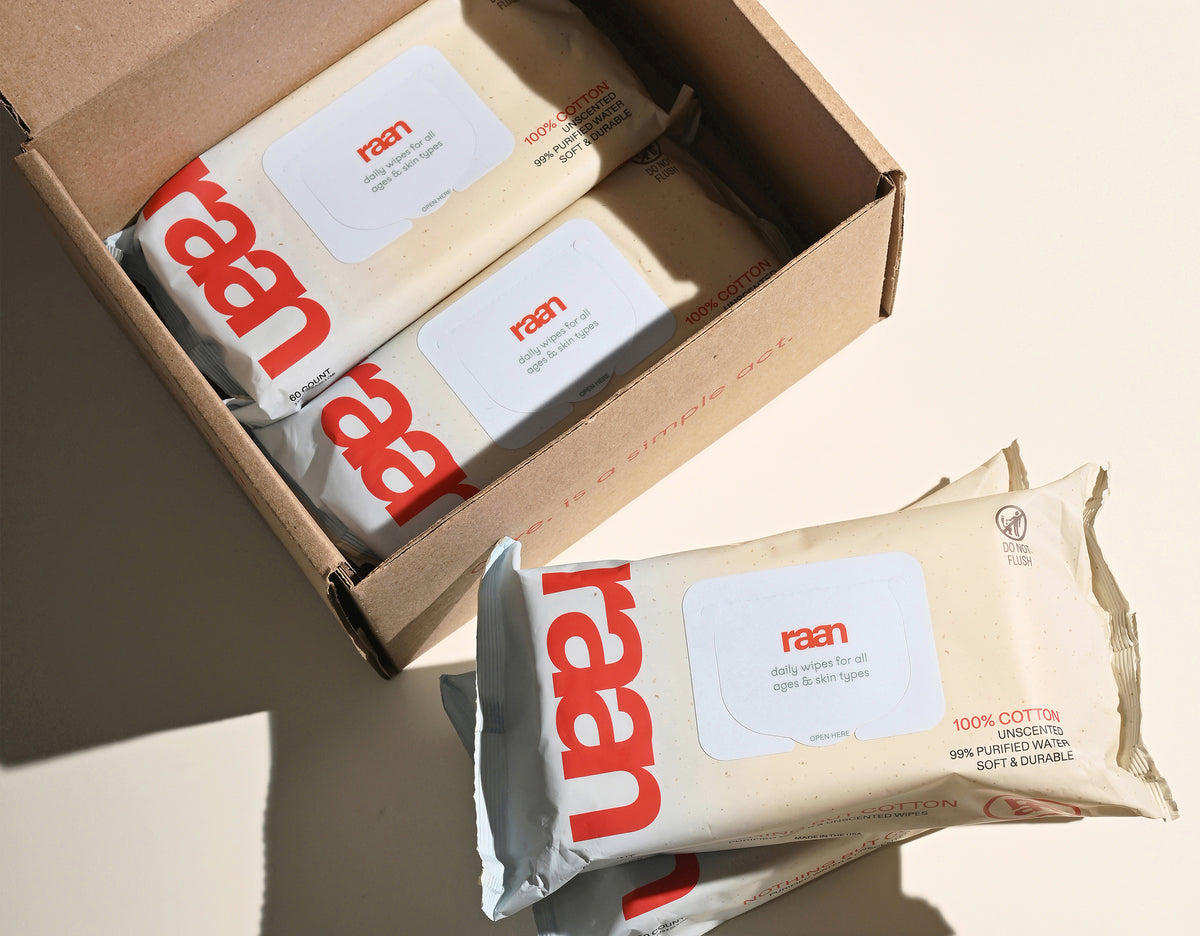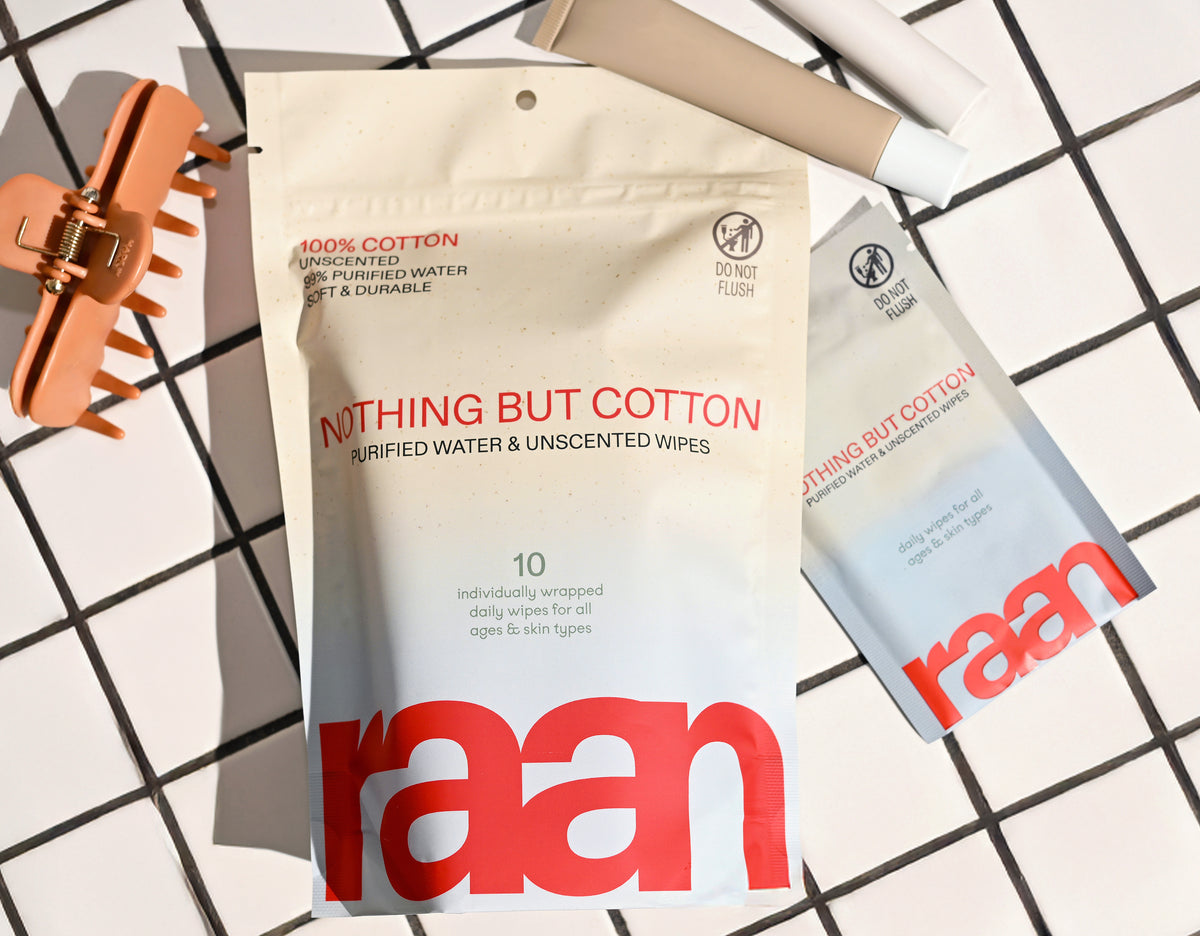Key Takeaways
- Sensitive skin affects up to 50% of adults and requires gentle, minimal ingredients to avoid irritation.
- Using the wrong wipes can cause stinging, redness, and discomfort for sensitive skin.
- Sensitive skin is a real condition that needs careful product selection.
- The skin's protective barrier in sensitive individuals is more reactive to harsh chemicals and additives.
- Synthetic fragrances and common additives in wipes can trigger adverse reactions in sensitive skin.
Table of Contents
- Understanding Sensitive Skin: Why Your Wipe Choice Matters
- Essential Ingredients for Gentle, Effective Wipes
- Common Irritants That Sensitive Skin Should Avoid
- Comparing Different Types of Wipes for Sensitive Skin
- Top Wipes for Sensitive Skin: Our Complete Comparison
- How to Choose the Right Wipes for Your Specific Needs
- Best Practices for Using Wipes on Sensitive Skin
- Alternatives and DIY Solutions for Sensitive Skin
- Making the Right Choice for Your Sensitive Skin
Understanding Sensitive Skin: Why Your Wipe Choice Matters
If you've ever grabbed a wipe only to feel that familiar sting or notice redness afterward, you're not alone. Sensitive skin isn't just about being "picky" , it's a real condition that demands thoughtful product choices. Your skin's protective barrier is more reactive than most, making it vulnerable to harsh chemicals, synthetic fragrances, and even seemingly innocent additives.
The challenge? Most conventional wipes are loaded with ingredients that sensitive skin simply can't handle. We're talking alcohol for "freshness," synthetic preservatives for shelf life, and plastic fibers that can cause micro-abrasions. When you're dealing with sensitive skin, every ingredient matters.
What Makes Skin Sensitive?
Sensitive skin occurs when your skin's natural barrier function is compromised or naturally thinner. This means irritants can penetrate more easily, triggering reactions like burning, stinging, redness, or dryness. Common triggers include:
- Synthetic fragrances, even "unscented" products can contain masking fragrances
- Alcohol-based formulas, strip natural oils and disrupt pH balance
- Harsh preservatives, like parabens and formaldehyde-releasing agents
- Plastic fibers, create friction and can harbor bacteria
- Dyes and colorants, serve no functional purpose but increase reaction risk
The solution isn't avoiding wipes altogether, it's finding ones formulated specifically for sensitive skin needs.
For more guidance on choosing safe wipes, see this how to choose baby wipes without harmful chemicals resource from Consumer Reports.
Essential Ingredients for Gentle, Effective Wipes

When you're shopping for sensitive skin wipes, the ingredient list tells the whole story. The best formulas focus on simplicity: fewer ingredients mean fewer chances for irritation, while each component serves a clear, skin-friendly purpose.
Water-Based Formulas: The Gold Standard
The gentlest wipes start with purified water as their primary ingredient. Water-based formulas provide effective cleansing without the harsh solvents found in chemical-heavy alternatives. Look for wipes that are 95% water or higher , this ensures you're getting maximum gentleness with minimal additives.
Natural Moisturizers That Actually Help
Effective hypoallergenic wipes include gentle moisturizing ingredients to prevent the dryness that often follows cleansing. Organic aloe stands out as particularly beneficial , it's naturally anti-inflammatory and helps maintain skin's moisture barrier. Unlike synthetic moisturizers that can feel heavy or cause breakouts, plant-derived options like aloe work with your skin's natural processes.
For those who want a portable option, individually wrapped wipes are ideal for on-the-go sensitive skin care.
Food-Grade Preservatives: Safety You Can Trust
Even the gentlest wipes need preservation to prevent harmful bacteria growth. The key is choosing products with food-grade preservatives like sodium benzoate and potassium sorbate. These ingredients are considered safe enough for consumption, making them ideal for products that touch your skin regularly.
If an ingredient isn't safe enough to eat, question whether it belongs on your skin, especially sensitive skin that absorbs more readily than normal skin types.
Common Irritants That Sensitive Skin Should Avoid
Understanding what to avoid is just as important as knowing what to look for. Many conventional wipes contain ingredients that serve the manufacturer's needs, longer shelf life, appealing scent, lower costs , rather than your skin's needs.
Synthetic Fragrances: The Hidden Danger
Fragrance ranks as one of the top allergens in personal care products, yet it appears in countless wipes marketed as "gentle" or even "for sensitive skin." The term "fragrance" can represent hundreds of different chemicals, none of which companies are required to disclose. Even products labeled "unscented" may contain masking fragrances to hide the natural scent of other ingredients.
For truly fragrance-free wipes, look for products that explicitly state "no added fragrance" and have ingredient lists short enough that you can verify this claim.
Alcohol and Harsh Cleansers
Alcohol-based wipes might feel refreshing initially, but they're particularly problematic for sensitive skin. Alcohol strips away natural oils, disrupts your skin's pH balance, and can cause immediate stinging or burning. Over time, alcohol-based products can actually make skin more sensitive by weakening the protective barrier.
Similarly, sulfates and other harsh surfactants can cause irritation even in small amounts. These ingredients create that "squeaky clean" feeling by removing too much of your skin's natural protection.
The Plastic Problem
Many conventional wipes are made from plastic fibers (polyester, polypropylene) that can create micro-abrasions on sensitive skin. These synthetic materials also don't biodegrade and can harbor bacteria more readily than natural fibers. Look for wipes made from 100% cotton or other natural materials instead.
For more on why unbleached cotton is preferable, read about unbleached cotton and its benefits for sensitive skin.
Comparing Different Types of Wipes for Sensitive Skin

Not all wipes are created equal, and understanding the different categories can help you make the best choice for your specific needs. Whether you're caring for a newborn, managing adult skincare, or looking for eco-friendly options, each type offers distinct advantages.
Newborn Skin Wipes vs. Adult Sensitive Skin Wipes
Newborn skin wipes are formulated for the most delicate skin imaginable, which makes them excellent for adults with sensitive skin too. These products typically feature the shortest ingredient lists and the gentlest formulations available. The main difference lies in packaging size and marketing, not necessarily formula quality.
Adult-focused sensitive skin wipes may include slightly more robust cleansing agents since adult skin is generally more resilient than newborn skin. However, the best options for both demographics share common features: minimal ingredients, natural materials, and absence of harsh chemicals.
Pros of Multi-Use Gentle Wipes
- Suitable for whole family use
- Often more economical than specialized products
- Gentle enough for face and body
- Versatile for various cleaning needs
Cons of Multi-Use Gentle Wipes
- May not address specific adult skincare needs
- Packaging might not suit adult preferences
- Limited variety in sizes or formats
Biodegradable vs. Conventional Wipe Materials
Biodegradable wipes offer significant advantages for sensitive skin beyond their environmental benefits. These wipes are typically made from natural fibers like cotton, bamboo, or plant-based materials that feel softer against delicate skin. The manufacturing process for biodegradable materials often involves fewer harsh chemicals, reducing the likelihood of residual irritants.
Conventional wipes made from synthetic materials may be more durable, but durability isn't always what sensitive skin needs. Natural fibers conform better to skin contours and are less likely to cause micro-abrasions during use.
For a deeper dive into the best options, check out our best wipes guide for sensitive skin.
Top Wipes for Sensitive Skin: Our Complete Comparison
After extensive research and testing, we've identified the best options for sensitive skin across different categories. Each product offers unique advantages, but our top pick stands out for its uncompromising approach to ingredient transparency and material quality.
Raan Cotton Wipes - Best Overall
Best for: Anyone seeking maximum transparency and gentleness
Rating: 5/5 stars
Raan represents a new standard in the wipe industry, built specifically for people who refuse to compromise on ingredient safety. Made from unbleached, 100% cotton with just five EWG-verified ingredients, these wipes prove that effective cleaning doesn't require a chemistry set.
The formula centers on 99% purified water and organic aloe, with food-grade preservatives that are gentle enough for the most reactive skin. What sets Raan apart is their radical transparency, every ingredient serves a clear purpose, and there are no hidden additives or vague "fragrance" listings.
For those who want to try the most transparent and gentle option, Raan Cotton Wipes are our top recommendation.
Minimalist Approach
Best for: Those prioritizing ultra-minimal ingredients
Rating: 4/5 stars
Some wipes are built on extreme simplicity: 99.9% water and a drop of fruit extract. This minimalist approach works well for very sensitive skin, though the lack of moisturizing ingredients can leave skin feeling dry after use.
Plant-Based Wipes
Best for: Budget-conscious families seeking plant-based options
Rating: 3.5/5 stars
These wipes offer plant-based ingredients at an accessible price point. However, the longer ingredient list includes some components that may trigger reactions in highly sensitive individuals.
Premium Softness
Best for: Those prioritizing ultra-soft texture
Rating: 4/5 stars
Some wipes feature exceptionally soft material and effective cleansing power. The ingredient list is relatively clean, though not as transparent as some alternatives.
| Product | Material | Key Ingredients | Certifications | Price Range | Best Feature |
|---|---|---|---|---|---|
| Raan Cotton Wipes | Unbleached 100% cotton | Water, aloe, food-grade preservatives | EWG Verified, Made in USA | $$ | Complete transparency |
| Minimalist Water-Based Wipes | Viscose/polyester blend | Water, fruit extract | Sensitive skin tested | $$ | Ultra-minimal formula |
| Plant-Based Wipes | Plant-based fibers | Water, plant extracts, preservatives | Hypoallergenic tested | $ | Affordable plant-based option |
| Premium Softness Wipes | Soft-spun fibers | Water, cleansing agents, moisturizers | Dermatologist tested | $$ | Premium softness |
For more scientific insight into sensitive skin and wipes, see this peer-reviewed article on skin barrier function.
How to Choose the Right Wipes for Your Specific Needs

Selecting the best wipes for sensitive skin requires understanding your particular triggers and use cases. What works perfectly for one person's sensitive skin might cause reactions in another, making it essential to evaluate products based on your specific circumstances.
Essential Certifications to Look For
Third-party certifications provide objective validation of safety claims. EWG Verified products undergo rigorous ingredient screening against the Environmental Working Group's database of chemical safety information. This certification ensures that every ingredient meets strict safety standards for human health.
Other valuable certifications include dermatologist testing, hypoallergenic verification, and cruelty-free status. However, be aware that some certifications are more meaningful than others, "dermatologist tested" doesn't guarantee the results were positive, while "hypoallergenic" has no regulated definition.
Look for products that combine multiple certifications rather than relying on a single claim. The most trustworthy brands pursue comprehensive third-party validation of their safety and quality claims.
Material Considerations for Sensitive Skin
The physical material of the wipe matters as much as the formula. Natural cotton wipes offer superior gentleness because cotton fibers are softer and less abrasive than synthetic alternatives. Unbleached cotton eliminates the risk of chlorine residue, which can trigger reactions in sensitive individuals.
For more on choosing the right hygiene products, see our guide to hygiene products for sensitive skin.
Avoid wipes made from plastic fibers (polyester, polypropylene) or rough textures designed for heavy-duty cleaning. These materials can cause micro-tears in sensitive skin and may harbor bacteria more readily than natural fibers.
Texture Matters
The softness and weave of a wipe can make a significant difference for sensitive skin. Choose wipes with a smooth, gentle texture to minimize friction and irritation.
Price and Value Considerations
Premium wipes for sensitive skin typically cost more per wipe than conventional options, but the investment often pays off in reduced skin reactions and medical visits. When evaluating cost, consider the true price per use rather than just the package price.
Higher-quality wipes are often more effective, meaning you use fewer per cleaning session. Additionally, the cost of treating skin reactions from harsh wipes, including prescription creams, doctor visits, and lost productivity , can quickly exceed the price difference of choosing gentler options from the start.
Best Practices for Using Wipes on Sensitive Skin
Even the gentlest wipes can cause irritation if used incorrectly. Proper technique and storage practices are essential for maintaining skin health and preventing contamination that could lead to infections or reactions.
Proper Wiping Technique
Use gentle, patting motions rather than aggressive rubbing. Excessive friction can damage the skin barrier and create micro-tears that allow irritants to penetrate deeper. For facial use, work from the center outward to avoid dragging debris into pores.
Allow the wipe's moisture to do the work, if you're scrubbing hard, the formula isn't effective enough for your needs. Quality wipes should lift dirt and oils with minimal pressure.
If you find yourself using multiple wipes for a single cleaning session, consider whether the product is truly effective for your needs. Sometimes switching to a more capable formula reduces overall skin contact and irritation.
Storage and Contamination Prevention
Proper storage prevents bacterial growth and maintains the wipes' effectiveness. Keep packages sealed tightly after each use, and avoid storing them in hot environments like car glove compartments where heat can break down preservatives.
Never add water or other liquids to wipe packages, as this dilutes preservatives and can introduce contaminants. If wipes seem dry, the package may have been compromised , discard rather than risk infection.
Alternatives and DIY Solutions for Sensitive Skin
While high-quality commercial wipes offer convenience and consistent formulation, some individuals with extremely sensitive skin prefer alternative approaches that give them complete control over ingredients and materials.
Reusable Cloth Wipes
Soft cotton cloths paired with gentle, homemade cleaning solutions can provide the ultimate in customization for sensitive skin. This approach eliminates preservatives entirely and allows you to adjust the moisture level and cleaning strength for each use.
The main challenges include the time investment for preparation and washing, plus the need to maintain proper hygiene to prevent bacterial growth on reused materials. Success requires dedication to a consistent cleaning and drying routine.
Simple DIY Wipe Solution
For those interested in making their own wipes, a basic solution can be created using distilled water, a small amount of gentle baby shampoo, and a few drops of natural oil like jojoba or coconut oil for moisturizing properties.
However, DIY solutions lack professional preservative systems, making them unsuitable for long-term storage. They must be used immediately and cannot match the convenience and safety testing of professionally manufactured products.
Making the Right Choice for Your Sensitive Skin
Choosing the best wipes for sensitive skin ultimately comes down to understanding your specific triggers, prioritizing ingredient transparency, and selecting products that align with your values around sustainability and manufacturing practices.
The wipe industry has evolved significantly, moving away from harsh chemicals and synthetic materials toward gentler, more transparent formulations. This shift benefits everyone, but particularly those with sensitive skin who have historically had limited options.
Our Top Recommendation
Raan Cotton Wipes represent the new standard for sensitive skin care. Their unbleached, 100% cotton material eliminates the plastic fibers found in conventional wipes, while their five-ingredient, EWG-verified formula provides complete transparency about what touches your skin.
The combination of food-grade preservatives, organic aloe, and 99% purified water creates an effective yet gentle cleaning experience that works for the whole family. Most importantly, Raan's commitment to radical transparency means you'll never wonder about hidden ingredients or manufacturing shortcuts.
For more on the best face products for sensitive skin, see our best face products for sensitive skin recommendations.
For individuals with sensitive skin, the investment in premium wipes pays dividends in comfort, peace of mind, and reduced risk of reactions. Your skin deserves products that prioritize safety over profit margins and transparency over marketing claims.
Whether you choose Raan or another high-quality option, prioritize products with third-party certifications, minimal ingredient lists, and natural materials. Your sensitive skin will thank you for the extra care and consideration.






